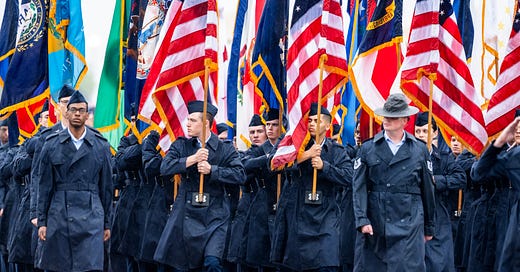Addicted to Achievement
How the Military Shaped My Drive and Why I’m Learning to Slow Down
From the beginning of my military career, I was taught that success meany constantly striving for more. Everything was a competition, and "merit-based" rewards reinforced the idea that free time was wasted time. At basic training, you wanted to be assigned the best jobs, excel on tests, and shine during the mock deployment “Beast” week. In 2013, graduat…
Keep reading with a 7-day free trial
Subscribe to Grumpy Combat Veteran to keep reading this post and get 7 days of free access to the full post archives.




